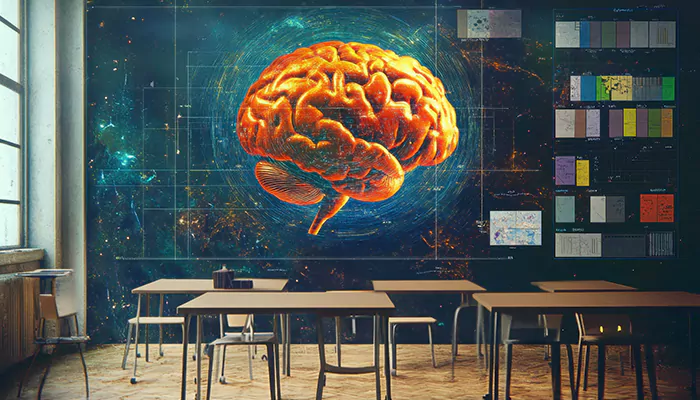Why is Computer Education Important in Schools?: Unveiling the Multifaceted Advantages During Computer Learning Month

In today's world, computers play an integral role in education, permeating every facet of our lives. Computers have become ubiquitous, from basic tasks like creating a Word document to complex endeavors like weather forecasting and drug discovery. The question arises: should young school children be introduced to computers, and are there benefits to their presence in educational institutions? The unequivocal answer is yes.
Educational institutions have long embraced computers for various purposes. Teachers utilize them to curate educational materials, administer activities, and manage student data. Simultaneously, students harness these digital tools as valuable resources for their learning journey.
The advantages of integrating computer education into classrooms are not novel, but their prevalence and application have expanded significantly. Today, students enjoy unparalleled access to information technology resources in and out of the classroom. This evolution underscores the undeniable importance of early exposure to computers, ensuring students are equipped with essential skills for a digitally-driven world.
Why is Computer Education Important in Schools?
Tailoring Education for Individuals
Students have developed a strong affinity for computer usage, finding joy in learning at their own pace. The integration of computers into education plays a significant role in fostering this enthusiasm. Students exhibit a consistent eagerness to harness the educational potential of computers, whether employed as projectors, robotics, or other versatile applications. The enduring impact of computers and various technological tools on classroom instruction is undeniable, continually introducing innovative teaching strategies to enhance the learning experience.Instant Access to Information
Students can reap the benefits of the internet just as much as adults. It grants students immediate access to information beyond what's covered in their textbooks. In today's digital age, youngsters are already familiar with using Google to seek knowledge. Computers empower students to delve deeply into any subject while guiding them toward appropriate learning resources. This invaluable resource enhances the educational experience for young learners, aiding in their academic pursuits.Preferred Educational Approach

The integration of computers into the education curriculum is likely to be enthusiastically embraced by students. This is primarily due to their familiarity with and regular use of tablets, smartphones, and various home devices. This existing comfort with technology simplifies the process of learning how to use computers effectively. Students derive enjoyment from utilizing these digital tools and are more than willing to employ computers for their academic assignments, making it a seamless transition in their educational journey.
Prepares Students for the Future
Fostering future-ready individuals stands as a prime advantage of introducing computer education into schools. Computers have become an omnipresent tool across diverse career paths. Equipping children with computer skills from an early age instills in them the confidence needed to confront the challenges life may present. Essentially, it readies them for the workforce, ensuring that students who interact with computers during their school years become proficient users in their future careers. Reflecting on our own school experiences, it's evident that computer education was not as accessible, making it a struggle to acquire essential digital skills. Beyond the basic use of computers, this educational approach promotes critical thinking, independent research, and tech-savviness in students, extending its benefits into broader horizons.Technological Advancements
We regard it as our duty, being one of the foremost institutions, to stay abreast of the rapid technological advancements. Devices such as computers, iPads, and interactive whiteboards consistently evolve, enhancing learning experiences for children. This approach keeps children actively engaged in valuable activities that not only foster their education but also contribute to their multifaceted development. In essence, computers stand out as one of the most effective tools for educating children about the world, opening doors to boundless knowledge and exploration.Increased Effectiveness
Throughout history, schools have played a pivotal role in enhancing students' academic performance through increased engagement in their studies. Computers, widely regarded as valuable tools, are believed to significantly enhance children's mathematical comprehension, critical thinking skills, and overall academic achievement, while also aiding them in tackling complex problems. Furthermore, computers are recognized for their profound influence on students' ability to excel in competitive examinations. Notably, children aged three to four stand to gain substantial benefits from early exposure to computers, including improvements in abstraction, intelligence, nonverbal aptitude, and long-term memory.Influences Career Choices
Introducing students to computers at an early stage can inspire them to pursue careers in engineering and technology. By incorporating computers into the learning environment, students not only enhance their comprehension of how technology impacts daily life but also bolster their enthusiasm for technology-related subjects. This knowledge, acquired during their school years, becomes a valuable foundation as they prepare for higher education, fostering a deeper interest in technology-related topics and careers.Boosted Creative Abilities
In computer lessons at school, students have the opportunity to harness their creativity effectively. For example, when tasked with researching how to depict a dam, a bird, or a vehicle, students can explore various techniques online, either individually or in groups. Furthermore, acquiring computer skills in an educational setting significantly reduces the time required to acquire new knowledge. Students may, for instance, be assigned the task of researching methods to maintain a clean environment. Through computer searches, students gain insights into preserving cleanliness in their surroundings, even if they are already familiar with the basics. Additionally, they can discover ways to repurpose everyday items, thus contributing to waste reduction.Incorporating computers into the classroom has become a necessity, given their pervasive presence in our daily lives. Failing to equip students with the skills to effectively utilize these tools can pose a significant disadvantage. The integration of computers offers a multitude of benefits, including heightened engagement, expanded access to information, personalized instruction, opportunities for collaboration, and the essential preparation of students for a digital-centric future. Embracing computer education within schools equips students with the essential tools not only to excel academically but also to thrive in a technologically advanced society, both in their educational journey and future careers.











